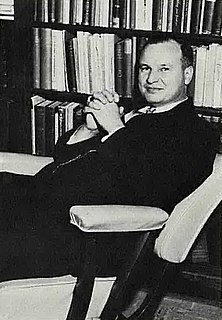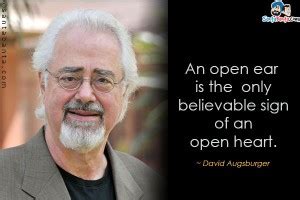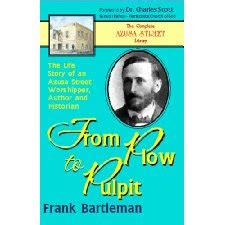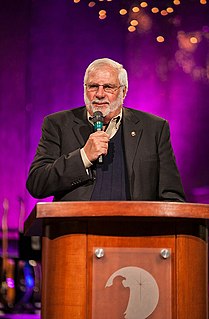A Quote by Franklin Littell
The Church, rightly conceived, is the whole covenant people called to serve in the world. The clergy are also part of the laity, and their true function is to help equip the laity to be the Servant People. If they turn aside to rule and to secure their own status, they have betrayed the calling of the special ministry.
Related Quotes
The clergy profession is fundamentally self-defeating. Its stated purpose is to nurture spiritual maturity in the church - a valuable goal. In actuality, however; it accomplishes the opposite by nurturing a permanent dependence of the laity on the clergy. Clergy become to their congregations like parents whose children never grow up, like therapists whose clients never become healed, like teachers whose students never graduate.
The problem is that, regardless of what our theologies tell us about the purpose of the clergy, the actual effect of the clergy profession is to make the body of Christ lame. This happens not because clergy intend it (they usually intend the opposite) but because the objective nature of the profession inevitably turns the laity into passive receivers.
I owe my nurture to evangelicalism. The evangelical wins hands down in the history of the church when it comes to nurturing a biblically literate laity. When we think of evangelism, evangelicals are the most resourceful, the most intrepid, and the most creative. But evangelicals themselves would say that they have never come to grips with what the whole mystery of the church is.
I was that kid. I was entertaining everybody in the living room and throwing myself down flights of stairs and making the family look special and making my mother feel better and I really wanted to make people happy. That has been my ministry my whole life. I call it The Church of F.F.C. - The Church of Freedom From Concern. And I'm a high priest in that church.
Religious bondage shackles and debilitates the mind and unfits it for every noble enterprise.... During almost fifteen centuries has the legal establishment of Christianity been on trial. What have been its fruits? More or less, in all places, pride and indolence in the clergy; ignorance and servility in laity; in both, superstition, bigotry, and persecution.
A revival almost always begins among the laity. The ecclesiastical leaders seldom welcome reformation. History repeats itself. The present leaders are too comfortably situated as a rule to desire innovation that might require sacrifice on their part. And God's fire only falls on sacrifice. An empty altar receives no fire!
When I was commissioned with the purpose of helping to restore prophetic ministry to the Church for its last-day ministry, I was told that it would not be until the prophets and teachers learned to worship the Lord together as they did at Antioch that He would release true apostolic ministry in the Church again.
































